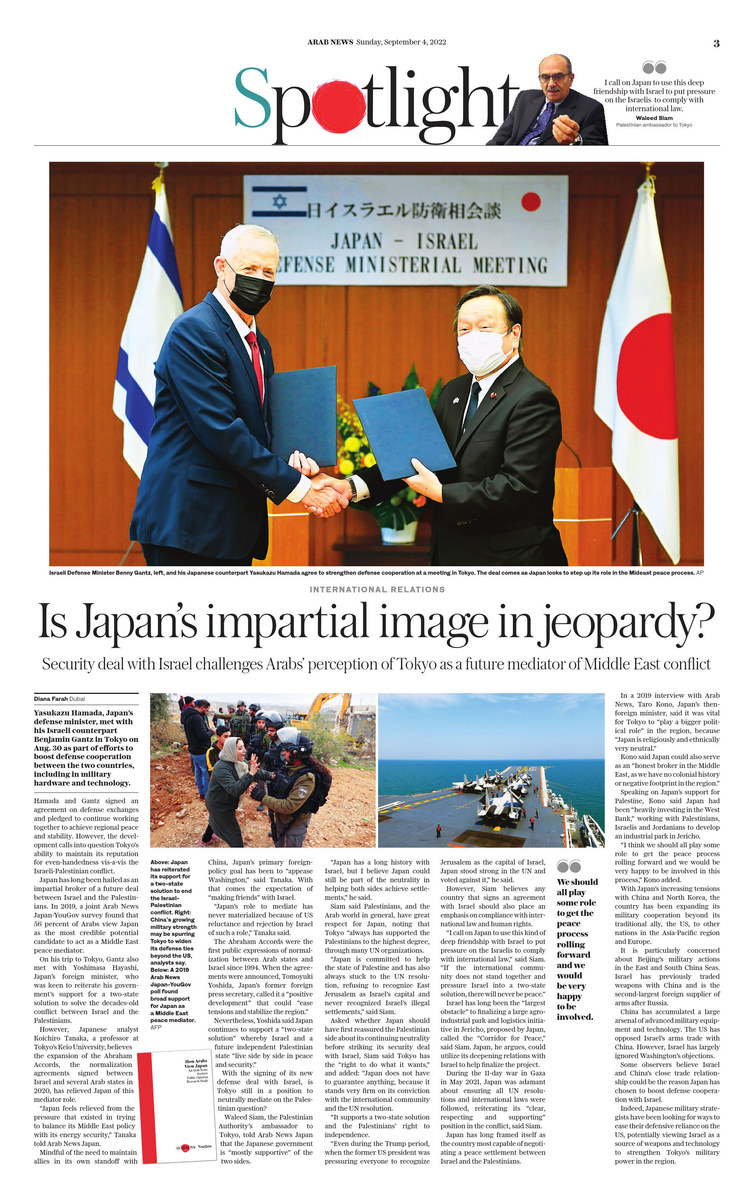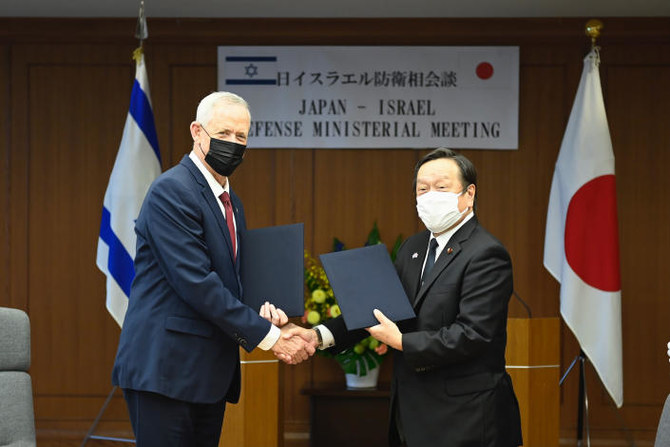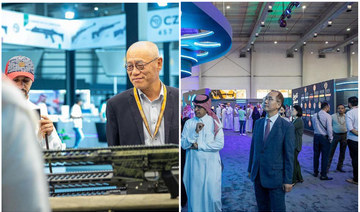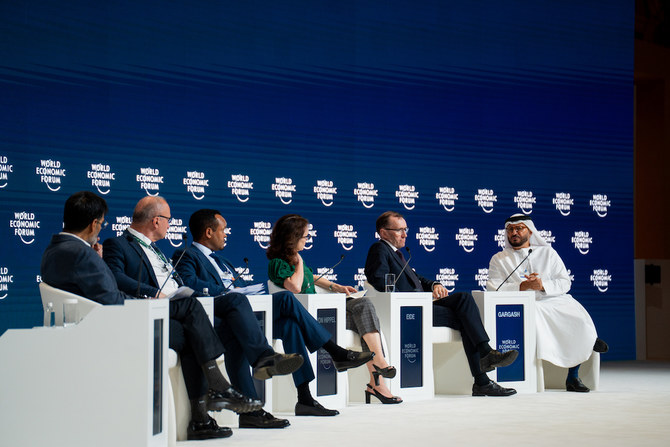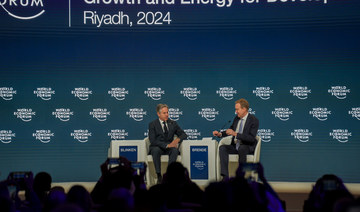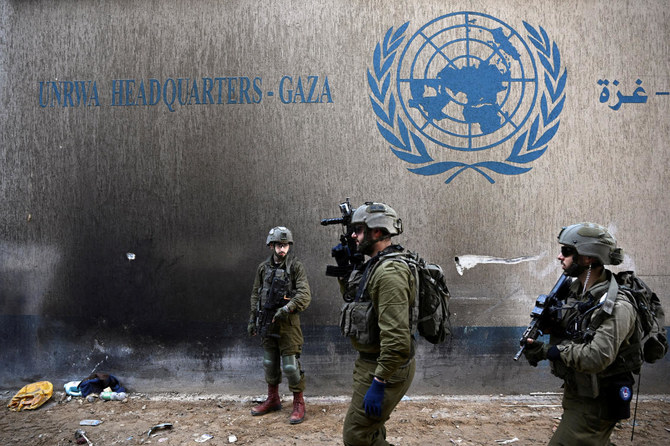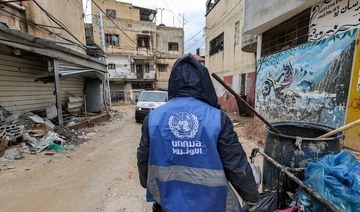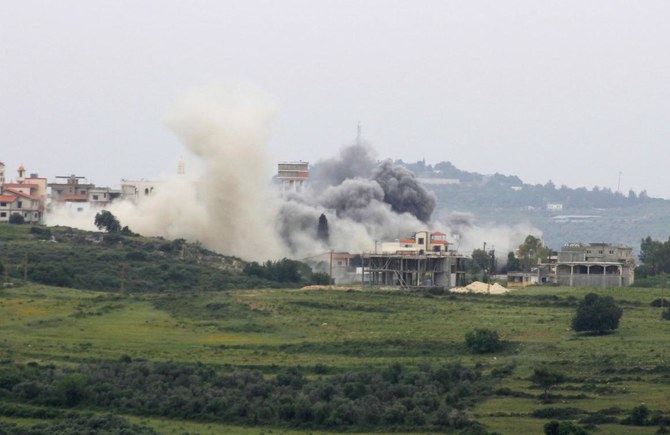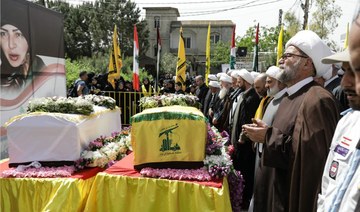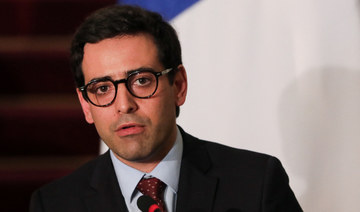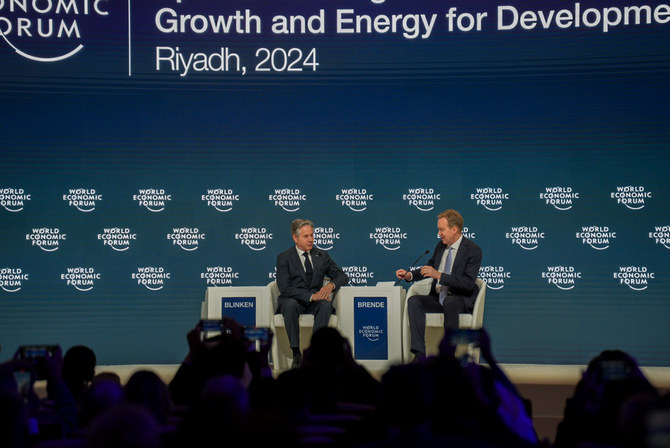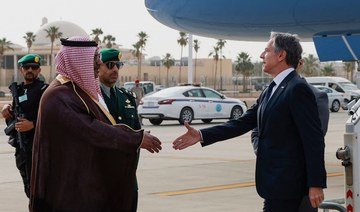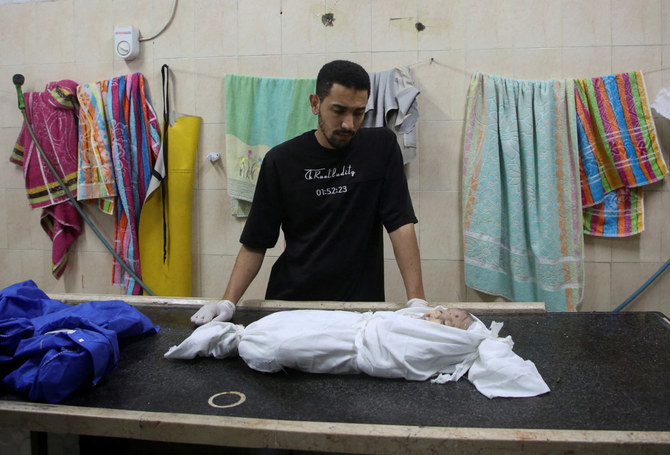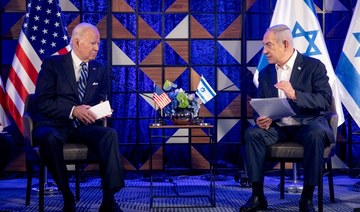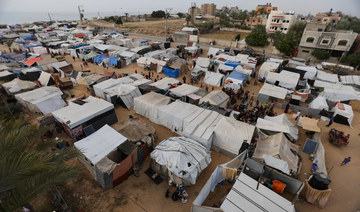DUBAI: Yasukazu Hamada, Japan’s defense minister, met with his Israeli counterpart Benjamin Gantz in Tokyo on Aug. 30 as part of an ongoing effort to boost defense cooperation between the two countries, including in military hardware and technology.
Hamada and Gantz signed a memorandum on defense exchanges and agreed to continue working together to achieve regional peace and stability. However, the development calls into question Tokyo’s ability to maintain its reputation for even-handedness vis-a-vis the Israeli-Palestinian conflict.
Japan has long been hailed as an impartial broker of a future deal between Israel and the Palestinians. In 2019, a joint Arab News Japan-YouGov survey found that 56 percent of Arabs view Japan as the most credible potential candidate to act as a Middle East peace mediator.
On his trip to Tokyo, Gantz also met with Yoshimasa Hayashi, Japan’s foreign minister, who was keen to reiterate his government’s support for a two-state solution to solve the decades-old conflict between Israel and the Palestinians.
However, Japanese analyst Koichiro Tanaka, a professor at Tokyo’s Keio University, believes the expansion of the Abraham Accords, the normalization agreements signed between Israel and several Arab states in 2020, has relieved Japan of this mediator role.
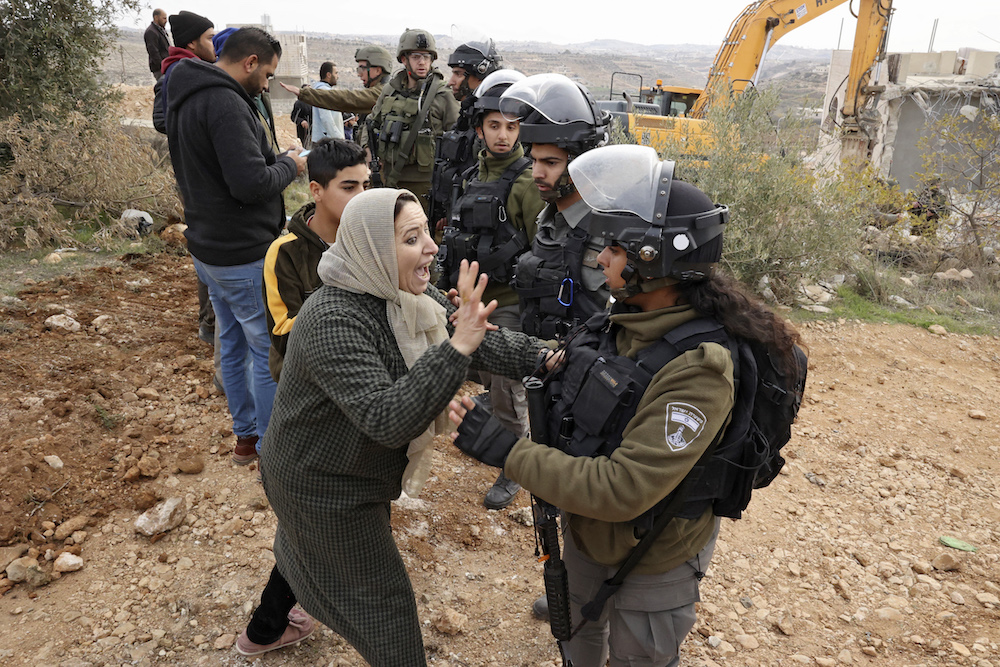
Palestinians are blocked by Israeli security forces as they try to stop the demolition of their home, located within the "Area C" of the occupied West Bank. (AFP)
“Japan feels relieved from the pressure that existed in trying to balance its Middle East policy with its energy security,” Tanaka told Arab News Japan.
Mindful of the need to maintain allies in its own standoff with China, Japan’s primary foreign-policy goal has been to “appease Washington,” said Tanaka. With that comes the expectation of “making friends” with Israel.
“Japan’s role to mediate has never materialized because of US reluctance and rejection by Israel of such a role,” Tanaka said.
The Abraham Accords were the first public expressions of normalization between Arab states and Israel since 1994. When the agreements were first announced, Tomoyuki Yoshida, Japan’s former foreign press secretary, called it a “positive development” that could “ease tensions and stabilize the region.”
Nevertheless, Yoshida said Japan continues to support a “two-state solution” whereby Israel and a future independent Palestinian state “live side by side in peace and security.”
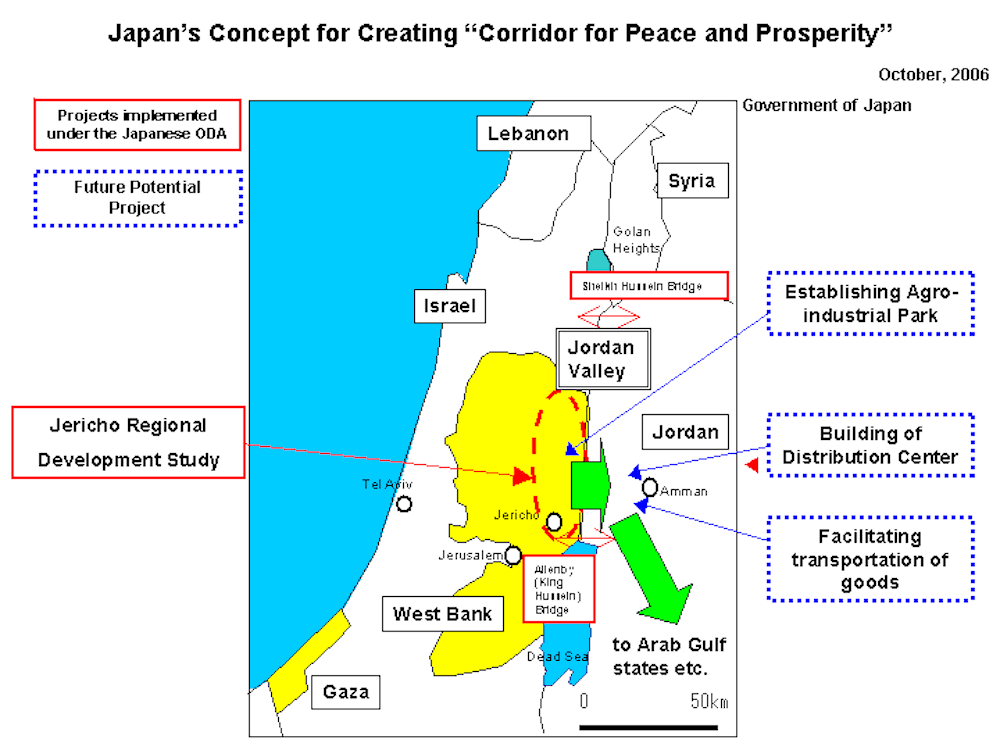
With the signing of its new defense deal with Israel, is Tokyo still in a position to neutrally mediate on the Palestinian question?
Waleed Siam, the Palestinian Authority’s ambassador to Tokyo, told Arab News Japan that the Japanese government is “mostly supportive” of the two sides.
“Japan has a long history with Israel, but I believe Japan could still be part of the neutrality in helping both sides achieve settlements,” he said.
Siam said Palestinians, and the Arab world in general, have great respect for Japan, noting that Tokyo “always has supported the Palestinians to the highest degree, through many UN organizations.
“Japan is committed to help the state of Palestine and has also always stuck to the UN resolution, refusing to recognize East Jerusalem as Israel’s capital and never recognized Israel’s illegal settlements,” said Siam.
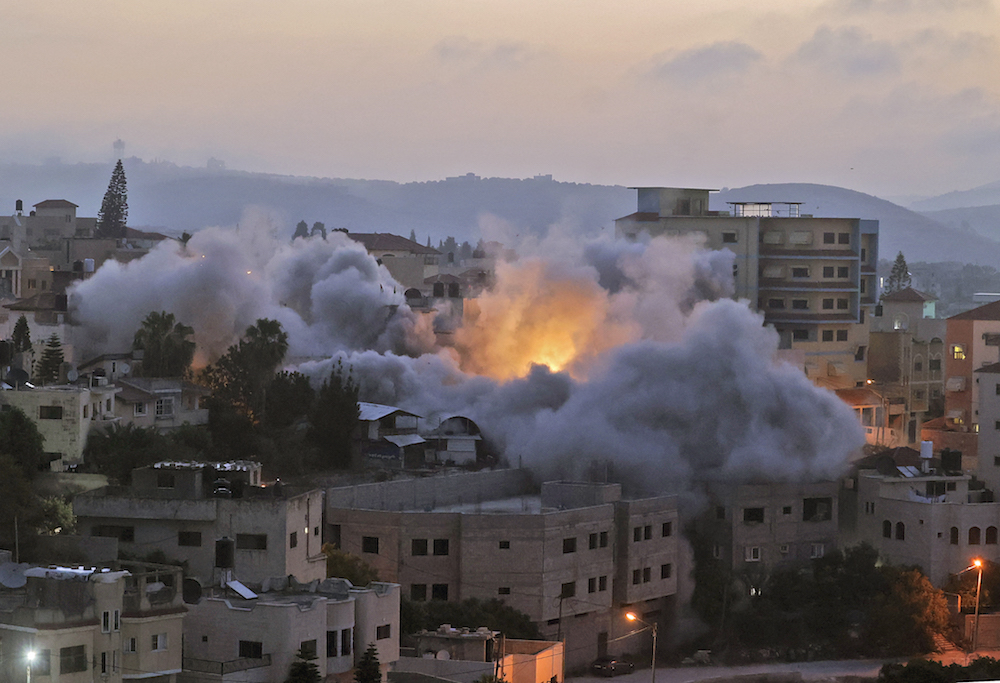
The Israeli army blows up the family house of Diaa Hamarsha, a Palestinian who in March killed five people in a gun attack in Bnei Brak, in the village of Yabad near the occupied West Bank town of Jenin. (AFP)
Asked whether Japan should have first reassured the Palestinian side about its ongoing neutrality before striking its security deal with Israel, Siam said Tokyo has the “right to do what it wants.
“Japan does not have to guarantee anything, because it stands very firm on its conviction with the international community and the UN resolution,” said Siam. “It supports a two-state solution and the Palestinians’ right to independence.”
He added: “Even during the Trump period, when the former US president was pressuring everyone to recognize Jerusalem as the capital of Israel, Japan stood strong in the UN and voted against it.”
However, Siam believes any country that signs an agreement with Israel should also place an emphasis on compliance with international law and human rights.
“I call on Japan to use this kind of deep friendship with Israel to put pressure on the Israelis to comply with international law,” said Siam. “If the international community does not stand together and pressure Israel into a two-state solution, there will never be peace.”
Israel has long been the “largest obstacle” to finalizing a large agro-industrial park and logistics initiative in Jericho, proposed by Japan, called the “Corridor for Peace,” said Siam. Japan, he argues, could utilize its deepening relations with Israel to help finalize the project.
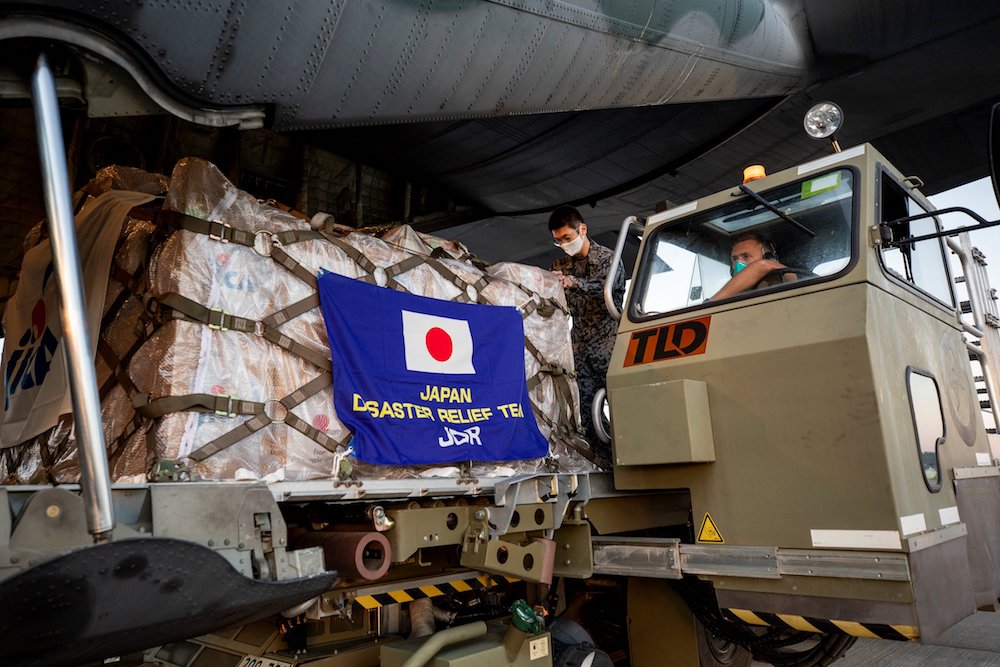
Japan has reiterated its support for a two-state solution to end the IsraelPalestinian conflict. (AFP/Australian Defence Force)
During the 11-day war in Gaza in May 2021, Japan was adamant about ensuring all UN resolutions and international laws were followed, reiterating its “clear, respecting and supporting” position in the conflict, said Siam.
Japan has long framed itself as the country most capable of negotiating a peace settlement between Israel and the Palestinians.
In a 2019 interview with Arab News, Taro Kono, Japan’s then-foreign minister, said it was vital for Tokyo to “play a bigger political role” in the region, because “Japan is religiously and ethnically very neutral.”
Kono said Japan could also serve as an “honest broker in the Middle East, as we have no colonial history or negative footprint in the region.”
Speaking on Japan’s support for Palestine, Kono said Japan had been “heavily investing in the West Bank,” working with Palestinians, Israelis and Jordanians to set up and develop an industrial park in Jericho.
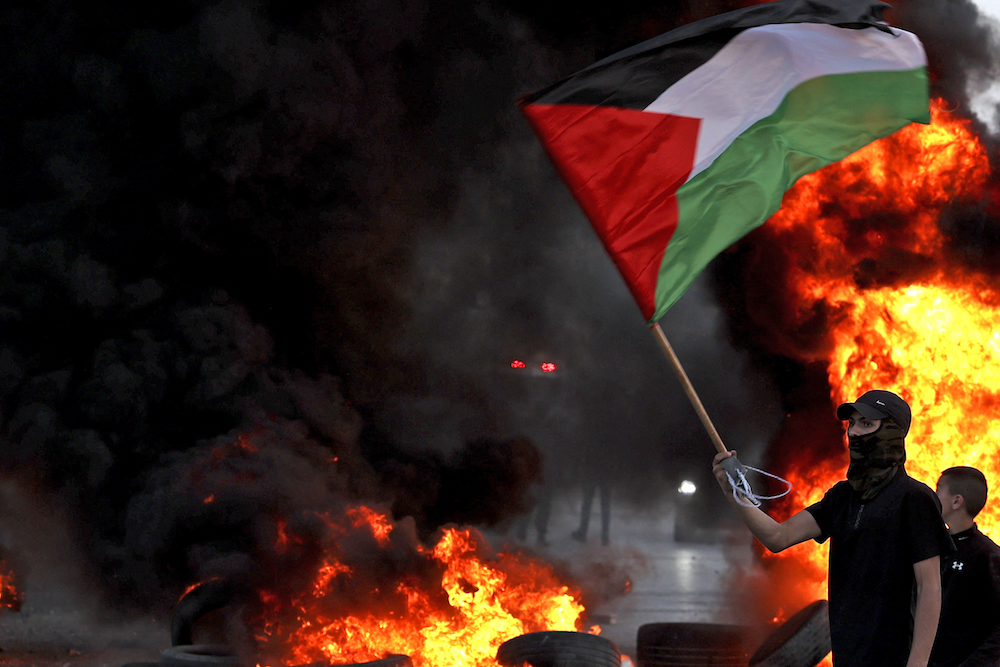
A masked protester waves a Palestinian flag near a tire fire during clashes with Israeli forces following a protest to denounce the annual nationalist "flag march" through Jerusalem. (AFP)
“I think we should all play some role to get the peace process rolling forward and we would be very happy to be involved in this process,” Kono added.
With Japan’s increasing tensions with China and North Korea, the country has been expanding its military cooperation beyond its traditional ally, the US, to other nations in the Asia-Pacific region and Europe.
It is particularly concerned about Beijing’s military actions in the East and South China Seas. Israel has previously traded weapons with China and is the second-largest foreign supplier of arms after Russia.
China has accumulated a large arsenal of advanced military equipment and technology. The US has strongly opposed Israel’s arms trade with China. However, Israel has largely ignored Washington’s objections.
Some observers believe Israel and China’s close trade relationship could be the reason why Japan has chosen to boost defense cooperation with Israel.
Indeed, Japanese military strategists have been looking for ways to ease their defensive reliance on the US, potentially viewing Israel as a source of weapons and technology to strengthen Tokyo’s military power in the region.
